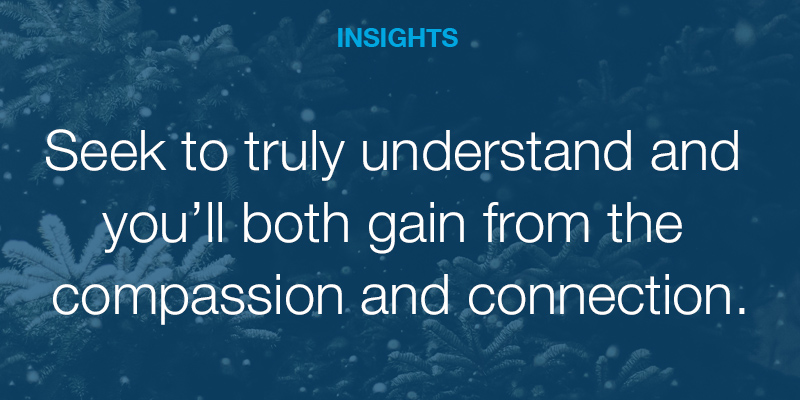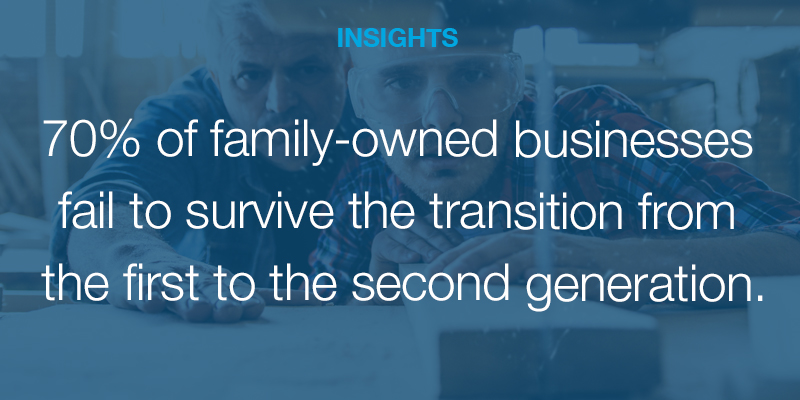
As many people prepare to gather with loved ones, visit distant relatives, and even meet new members of the family, it’s a great time to prepare to make the most of these interactions. No matter the climate around us or the difference in our own beliefs or values, we can always choose to show up positively and productively.
Here are three thoughts you can carry with you as you consciously choose to approach others with curiosity and compassion this holiday season.
Thought 1: I can get mad, or I can get curious – I get to choose.
When met with stress or frustration, we can always choose how to respond. We can choose the default response of being angry, or we can rise above anger and choose a more productive response: suspending judgment and getting curious. This response can be especially productive in interactions with others.
When we recognize that we all have our own unique experiences in life that shape our reality, we can seek to understand the perspective of others rather than judging them. When you’re tempted to retreat into anger when engaging with someone different from you, lean in and get curious. Seek to truly understand and you’ll both gain from the compassion and connection.
Thought 2: I can connect more when I ask empowering questions and listen.
Empowering conversations help people have deeper conversations and improve relationships, making them perfect for the holiday season when we have family and relationships top of mind.
Empowering questions are:
- Open-ended: You can’t answer with a “yes” or “no.”
- Clarity-seeking: You’re truly looking to learn, not judge.
- Thought-provoking: You might challenge or probe in ways that inspire new thoughts and perspectives.
Need some empowering conversation starters? Use this list to get deeper and build better connections:
- If you had all the time, energy, and money to achieve your goal, what would you do?
- What gives you energy, and what drains it?
- What makes you laugh?
- What keeps you going?
- What values and beliefs guide your life and your decisions?
- What are you most grateful for this year?
Asking the right questions is half of the empathy equation; the other half is listening. After you’ve asked, lean into active listening as you focus on what’s being said and validate and affirm the other person’s experience and feelings.
Thought 3: Sometimes the story I’m telling myself isn’t the truth.
We all come to situations and conversations with our own perceived idea of what is true. Our judgments, views, experiences, and expectations come together to create narratives that might not reflect reality. To combat these false narratives, we must first identify that we’re creating a story that isn’t the truth.
When you find yourself reacting to a situation or person in a way that feels inauthentic to your values, take a moment to ask yourself if you’re creating a story in your head – about yourself, or about someone else. Give yourself grace as you acknowledge the stories you’re making up and use empowering questions to dispel untruths and assumptions you’re making about others.




